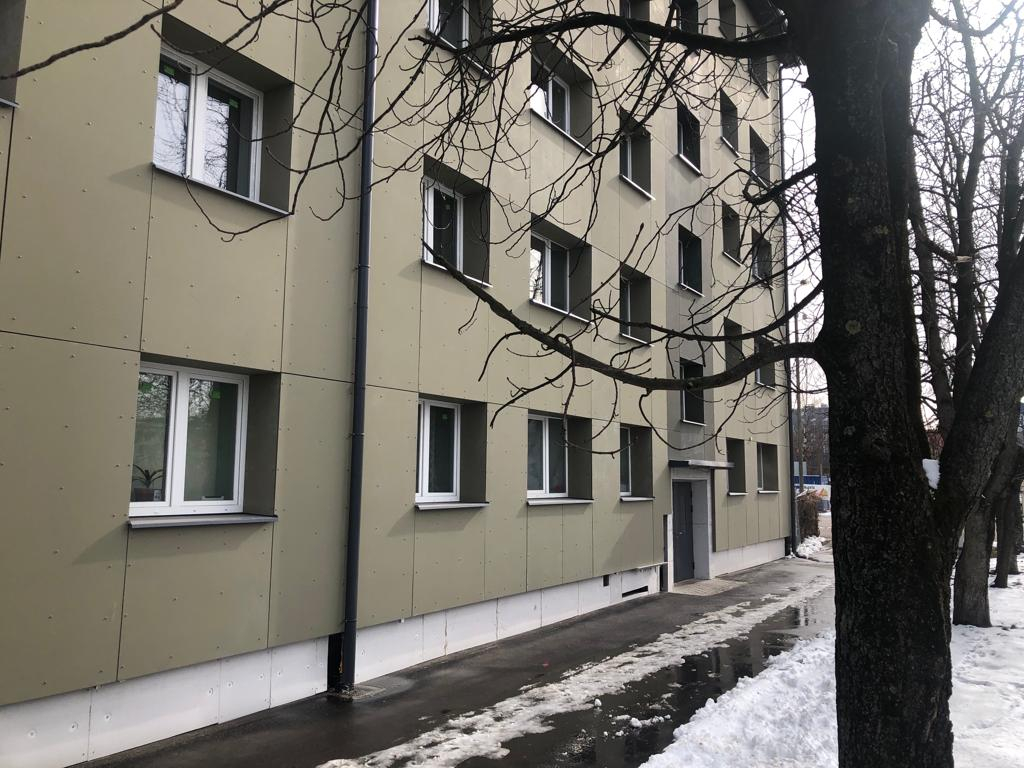Only one in ten Soviet houses in Rīga has been insulated. Latvian Radio traveled to the neighborhood opposite the Botanical garden to ask residents about the situation. The answers were not encouraging:
“It's very difficult to assemble, and I think people just don't want to invest money if they don't see the result right away. I think many apartment houses have debts for utilities, so it's unlikely anyone would agree to pay for the heat.”
“It's expensive, so nobody wants to spend. Rich people don't live here. Mostly pensioners. Therefore, there are no renovated multi-apartment buildings in this area.”
“It's very warm. The apartment is 20-25 degrees. We don't need more heat. I don't know how it is to live on the first floor or in an apartment that is by the wall at the end of the house. Maybe they're cold. Yes, the bills were high.”
“I don't think they don't want to. There are a lot of pensioners living in my house. I think it's a matter of money. They may not be able to save up and are prepared to endure the cold.”
“Our house has no savings. Nor does the house have any enthusiasts who would take it on. When we carried out a roof repair for the house, my husband took it up. It was a horror. He said he would never do such a job again.”
Latvia has a total of 16 thousand multi-apartment houses built during the Soviet times. 70% of these houses must be repaired and insulated, said Gatis Silovs, head of the Energy Finance Division of the Ministry of Economics.
“These are about 11 thousand multi-apartment homes that could use some renovation as it would improve the technical state of the house. We understand the word “renovation” in a broad sense since in principle any house should be repaired once every 20-30 years. It would be normal. [..] The practice is that it has been done very rarely in Latvia over the last 30 years. Consequently, the reality is that there is not enough investment to improve the state of buildings," Silovs said.
In the last 13 years, when multi-apartment home heating programs started in Latvia, only 1600 multi-apartment houses have been insulated, or only 10% of the total number that should be done. Until now, a little over €530 million has been invested in the insulation of multi-apartment houses. The insulation of multi-apartment buildings may be divided into two large sections: 2007-2013, when the energy efficiency program was introduced by the Latvian Investment and Development Agency, and 2014-2020, when the program was implemented by Altum.
322 multi-apartment homes have been completed in the Altum program and 93 are in process throughout Latvia.
“There is enough money for a little over 300 more projects. These projects have been submitted to the program. They are in the prep phase,” said Ieva Vērzemniece, representative of Altum.
Latvian Radio traveled to another location in Riga, the intersection of Hanzas and Vesetas Street, to meet with Klinta Harju, one of the owners of Hanzas Street 8, who, along with other inhabitants of the building, launched an energy efficiency project.
The house was scheduled to be fully renovated by Christmas, but the works have dragged on. There are several reasons for this. “First, there is a problem with the supply of materials. It was in the midst of Covid, but right now, because of the Ukraine war and the crisis in the economy, I think it will be even more difficult. As we all thought we were making this project in the wrong time, because it is Covid and difficult, costly, it seems with hindsight that we have jumped onto it timely,” she said.
The inhabitants of Hanzas Street 8 have already begun to enjoy the refurbishment of the building, which has steady and sufficient water pressure, as well as warmer apartments, which was particularly enjoyable during this heating season. The energy bills were cut in half. There are new windows and radiators in each apartment, with the possibility for the owner of each apartment to adjust the heat.
EM representative Silovs said that one of the biggest issues is the agreement of the inhabitants: "The problem arises when there is no homeowner. Where there is a homeowner, it is done and the house is maintained. Where there is no homeowner, nothing happens," said Silovs.






























